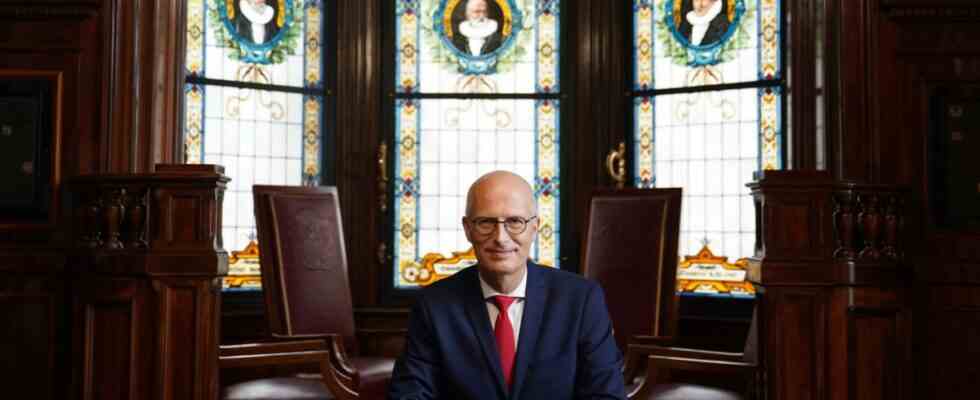Peter Tschentscher didn’t have to go far to the plenary hall of Hamburg City Hall on Friday afternoon, after all he has governed Hamburg since 2018. Now, however, the SPD mayor sat as a witness before the parliamentary committee of inquiry into the Cum-Ex issue. In order to restore the reputation of the Hamburg tax authorities, “I’m happy to be here,” says Tschentscher, but he’s had more pleasant appointments.
For months, the committee has been dealing with illegal tax transactions, known as cum-ex, by the Hamburg private bank Warburg and the role of the Senate and the tax authorities. In 2016, the Hanseatic city initially waived tax debts of 47 million euros for the financial institution near the Alster and a further 43 million euros in 2017 before the Federal Ministry of Finance asked the people of Hamburg to collect the sum.
Warburg has since had to repay the money and interest after several court decisions, but the investigative committee is still interested in what happened back then. At the time, the Warburg Bank was already under investigation, and the public prosecutor’s office also had their premises searched. Nevertheless, the SPD-led Hamburg initially spared the house. Why?
It has long been known that the mayor at the time, Olaf Scholz, met Warburg banker Christian Olearius several times and even advised him by telephone to forward a letter to the finance senator. In it, the bankers denied guilt and complained that the bank would be at risk in the event of repayments. Finance Senator Tschentscher handwritten on the letter “Please provide information on the current situation”. The tax office later refrained from asking Warburg to pay. Tschentscher “held his protective hand over rich bankers,” says Gerhard Schick of the Finanzwende citizens’ movement.
“Acted exclusively in accordance with the law”
A year ago, today’s Chancellor Scholz denied political influence before the committee of inquiry. Now his successor Tschentscher, the former finance senator, did the same in similar words. They acted “exclusively in accordance with the law” and the allegations were “completely unfounded.”
Like Scholz, he could not remember some details. He called it his duty to forward Warburg’s “defense letter,” as Tschentscher describes the letter from the bank. The Warburg tax case was “a dilemma”: Warburg’s guilt, according to his argument, had not yet been proven, and there were fears of claims for damages in the event of an unjustified reclaim. A Cologne public prosecutor found Hamburg’s reluctance to Warburg apparently ok. the Prosecutor Anne Brorhilker on the other hand, explained to the committee of inquiry that the evidence in 2016/17 was overwhelming and that the Hamburg decision was incomprehensible.

